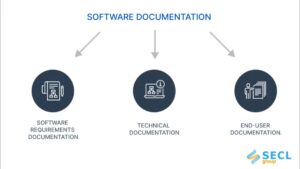In today’s digital age, choosing the right app for your business can make a huge difference in its success. Whether you’re a small business owner or running a large enterprise, the apps you choose to integrate into your daily operations play a crucial role in improving efficiency, streamlining processes, and enhancing customer satisfaction. With a wide variety of business apps available, it can be overwhelming to make the right choice. This guide will walk you through how to select the right app for your business needs, ensuring that it aligns with your goals and helps your business grow.
Understanding the Importance of Choosing the Right App
Selecting the right app for your business is no longer just about convenience—it’s about leveraging technology to improve productivity, increase profitability, and stay competitive in your industry. The right app can:
- Boost Productivity: Automation tools, task management apps, and communication platforms can save time and allow your team to focus on more strategic activities.
- Enhance Collaboration: Collaboration apps like Slack, Microsoft Teams, or Asana help teams work together efficiently, regardless of location.
- Increase Efficiency: Using the right software reduces the need for manual processes, eliminating errors, and speeding up workflows.
- Streamline Customer Experience: Apps that help you manage customer relationships (CRMs), track orders, or even provide self-service options can greatly enhance the customer experience.
On the flip side, choosing the wrong app can lead to wasted time, additional costs, and frustration, ultimately hindering the productivity and success of your business.
Identifying Your Business Needs
Before you start looking for an app, you need to clearly define your business needs. This is a critical first step that will guide your decision-making process. Here are a few key questions to ask yourself:
- What problem are you trying to solve? Identify the specific challenge or inefficiency you are looking to address. For example, are you trying to improve team collaboration, enhance project management, or streamline customer service?
- What are your goals? Consider both short-term and long-term goals. Are you looking to increase sales, improve internal communication, or automate specific processes? Make sure the app aligns with your objectives.
- Who will use the app? Understanding the people who will interact with the app, whether it’s employees, customers, or suppliers, is essential to determine its functionality and user-friendliness.
Once you have a clear understanding of your business needs, you can begin your search for an app that fits your specific requirements.
Features to Look for in a Business App
When evaluating different apps for your business, there are several important features you should consider to ensure the app will meet your needs:
1. User-Friendly Interface
A user-friendly interface is critical, especially if your team is not tech-savvy. An app that’s difficult to navigate can waste time and result in a poor user experience. Look for apps that have an intuitive design and straightforward functionality. The simpler the app is to use, the quicker your employees will be able to adopt it, and the less time will be wasted on training.
2. Customization Options
Every business is unique, and the app you choose should allow you to customize it to suit your operations. Whether it’s adjusting the interface or adding custom features, flexibility is key. Customizable apps enable you to tailor the system to your business’s specific workflows, enhancing its effectiveness.
3. Integration with Existing Tools
Your business already uses several tools (email systems, accounting software, CRMs, etc.), so it’s important that the new app integrates seamlessly with these tools. Compatibility ensures that data can flow easily between different platforms, reducing the risk of errors and improving the overall efficiency of your operations.
4. Scalability
As your business grows, your app needs may change. Choose an app that can scale with your business and accommodate future expansion. Whether it’s handling an increased number of users or processing more data, scalability ensures that the app remains effective and relevant as your business evolves.
5. Security Features
With the increasing amount of sensitive data being shared online, security is more important than ever. Look for apps that offer robust security features such as data encryption, secure cloud storage, and multi-factor authentication. Your business app must protect your data and your customers’ information from potential threats.
6. Customer Support and Training
No app is perfect from the start, so it’s essential to choose a solution that offers excellent customer support. Look for apps that provide 24/7 support, user manuals, tutorials, and regular software updates. A reliable support team can assist you in resolving issues quickly and ensure minimal disruption to your operations.
7. Cost-Effectiveness
Business apps come in various price ranges, and you should choose one that fits within your budget while meeting your needs. While it’s tempting to go for free or low-cost options, always consider the value the app provides. Compare pricing plans and evaluate whether the app’s features and benefits justify the cost.
Researching Available Apps
Once you have a clear understanding of your needs and the features you’re looking for, it’s time to begin researching available apps. Here are some strategies to help you in your search:
1. Online Reviews and Ratings
Reading reviews and ratings from other businesses can provide valuable insight into how well an app performs in real-world scenarios. Look for reviews on trusted platforms such as G2, Capterra, or Trustpilot. Pay attention to both positive and negative feedback to get a balanced perspective.
2. Test the App
Many apps offer free trials, which is a great way to test the app before committing to it. Use the trial period to evaluate how well the app works for your business. Ensure it delivers the features and functionality you need and is compatible with your team’s workflow.
3. Consult with Peers and Experts
Sometimes the best recommendations come from people in your industry. Reach out to other business owners or industry experts who have used specific apps to get their opinions. Their first-hand experience can help you avoid potential pitfalls and find an app that’s well-suited for your business.
4. Consider App Longevity and Developer Reputation
It’s essential to choose an app that’s developed by a reputable company with a proven track record. Investigate the developer’s history, financial stability, and commitment to improving the app. Avoid apps that seem to be in their infancy or may be discontinued in the near future.
Evaluating App Pricing Models
When choosing an app, you’ll also want to evaluate its pricing model to ensure it aligns with your business’s budget. Here are some common pricing models for business apps:
- Subscription-Based: Many apps offer monthly or annual subscriptions, providing access to the full range of features. While this model can be cost-effective, ensure that you can cancel the subscription if the app no longer serves your needs.
- Freemium: Some apps offer a free version with limited features and paid plans for more advanced functionality. This model allows you to try the app before committing to a paid plan.
- One-Time Purchase: In some cases, you may be able to pay a one-time fee for lifetime access to the app. This can be ideal for businesses that need a straightforward solution without ongoing costs.
- Pay-as-You-Go: With this model, you pay based on your usage, such as the number of users, amount of data processed, or features used. It’s important to understand the pricing structure to avoid unexpected costs.
1. Consider ROI
While cost is an important factor, it should not be the only consideration. Look at the potential return on investment (ROI) the app can deliver. Will it save your business time and money? Will it help you scale or increase revenue? Make sure you assess the app’s value relative to its cost.
Making the Final Decision
After carefully considering all the factors above, it’s time to make your decision. When choosing an app for your business, remember that it’s not just about finding a solution that fits your immediate needs—it’s about choosing an app that will grow with you and support your long-term business goals.
Don’t rush the decision-making process. Take your time to evaluate different options, and remember that the right app can have a significant impact on your business’s success. Once you make your choice, ensure proper training and implementation, and continuously evaluate the app’s performance to ensure it continues to meet your needs.
Conclusion
Choosing the right app for your business is a crucial decision that can have a profound impact on your operations, productivity, and overall success. By carefully evaluating your needs, the features of potential apps, and the developer’s reputation, you can find a solution that supports your business’s growth and objectives. Remember to prioritize ease of use, scalability, integration capabilities, and security features, and consider the long-term value an app can provide. With the right app in place, your business can run more efficiently, deliver better customer service, and stay competitive in an ever-evolving digital landscape.



